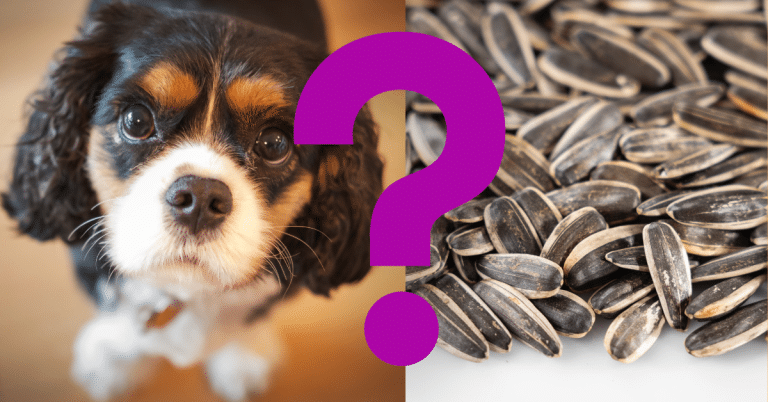Can Dogs Eat Boiled Eggs? A Vet’s Opinion

Eggs are a great source of protein, but can you feed Eggs to your dog?
Eggs are generally safe for dogs to consume when appropriately done and in moderation as part of a balanced diet. Boiled eggs are an excellent source of vitamins and minerals for dogs.
Benefits Of Eggs For Dogs
The following are some potential benefits of giving dogs cooked eggs:
- Eggs are a good source of high-quality protein, which is necessary for developing and maintaining muscles, organs, and other tissues in dogs. Protein is necessary for a robust immune system and skin and coat health.
- Eggs are nutrient-rich and contain vital vitamins B12 and D, riboflavin, selenium, and choline, which are suitable for a dog’s health and well-being.
- Eggs are simple for dogs to digest, making them an excellent choice for dogs with sensitive stomachs or digestive problems. The protein in eggs is also thought to be highly bioavailable, meaning a dog’s body can easily absorb and use it.
- Healthy fats: Omega-3 fatty acids found in eggs can help dogs have a shiny coats and healthy skin. Dogs with joint problems or inflammatory diseases may benefit from the anti-inflammatory properties of omega-3 fatty acids.
- Due to their high protein and fat content, eggs are a fantastic energy source for dogs. A dog’s diet that includes eggs might give them the energy they require to support their active lifestyle.
- Dental health: By reducing plaque buildup and enhancing breath odor, chewing on boiled eggs can help dogs maintain good dental health. However, it’s crucial to remember that dogs should still regularly clean their teeth and that eggs shouldn’t be their primary dental care method.
- Eggs can be cooked in various ways, including boiled, scrambled, or poached, giving you some flexibility in serving them to your dog. Remember not to add potentially dangerous components to your food, such as salt, seasonings, or other additives.
- Weight loss: Eggs are an excellent source of protein, which can make dogs feel happy and complete, possibly assisting with weight loss attempts. Promoting satiety and lowering the desire to munch on harmful treats, protein-rich foods like boiled eggs may help dogs maintain a healthy weight.
As always, if your dog has any health issues or dietary limitations, you should consult your veterinarian before making any food changes, including adding boiled eggs. Your veterinarian can offer you individualized guidance depending on your dog’s particular requirements.

How To Safely Give Eggs To Dogs?
To properly feed boiled eggs to dogs, follow these simple instructions:
- To reduce the risk of hazardous pathogens like salmonella, always ensure the eggs are fully cooked, whether hard-boiled or well-done. Eggs that are raw or undercooked might be harmful to dogs’ health.
- When the eggs are finished boiling, take the shells off so your dog can eat them. Eggshells may be hard for dogs to digest and a choking hazard.
- Avoid adding ingredients: When feeding boiled eggs to your dog, leave out salt, seasonings, butter, and other additives. Dogs do not require additional flavors or salt in their food, and some additives may even be detrimental.
- Start with modest portions to watch how your dog responds if it’s the first time giving eggs to your dog. To prevent allergies or potential gastric discomfort, introduce new meals gradually.
- After giving your dog cooked eggs, keep an eye out for any adverse reactions, including vomiting, diarrhea, and changes in behavior or appetite. Consult your veterinarian if you experience any strange symptoms.
- You should only feed your dog eggs to supplement a balanced diet, not as the only food source. Boiled eggs should be a suitable addition to your dog’s diet after considering their age, size, amount of exercise, and health issues.
- Variety is critical: While giving dogs eggs as a treat can be beneficial, offering a wide variety of foods is crucial to guarantee a balanced diet. It’s ideal for including eggs in your dog’s diet as part of a varied and well-rounded diet rather than making them the only source of nutrition for your dog.
- Please seek advice from your veterinarian: Before making any dietary changes, including giving your dog boiled eggs, it’s always a good idea to speak with your veterinarian. Your veterinarian can offer personalized guidance based on your dog’s particular requirements and health situation.
You can safely give boiled eggs to your dog as a wholesome treat or dietary addition by following these instructions.
Will Eggs Make A Dog Sick?
While eggs are typically considered safe for dogs to eat, a few possible hazards are involved with doing so. Here are some things to remember:
Raw or undercooked eggs may carry dangerous bacteria like salmonella, which can make dogs sick if consumed. Before giving eggs to your dog, ensure they are fully cooked to reduce the possibility of bacterial contamination. Eggs are one food that some dogs may be allergic to or sensitive to, much like some humans. Egg proteins can trigger allergic responses in dogs, resulting in symptoms including itching, vomiting, diarrhea, or skin irritations. After giving your dog eggs, stop giving them if you see any symptoms of an allergic reaction and consult your veterinarian.
A high level of fat Eggs contains a fair amount of fat, especially in the yolk. Eggs may raise the risk of digestive disturbance or weight gain when fed in excess or as the sole sustenance source for dogs with certain medical conditions, such as pancreatitis or obesity.
Avoid giving dogs eggs with additional salt, spices, butter, or other additives. These may affect dogs and result in stomach difficulties or other health issues. Portion control is crucial when consuming eggs as part of a balanced diet. Overfeeding your dog with eggs or any other meal might result in a nutritional imbalance and possibly weight gain or digestive problems. When giving your dog eggs or any other meal, it’s crucial to consider their specific dietary requirements, age, size, and general health. To ensure a balanced and healthy diet for your dog, it is best to talk with your veterinarian about the correct quantity and frequency of eggs or any other food to provide.

Vet’s Summary
Raw or undercooked eggs have the risk of becoming contaminated with bacteria, including dangerous ones like salmonella, which can make dogs sick. This emphasizes how crucial it is to thoroughly boil eggs before giving them to your dog to reduce the possibility of bacterial contamination. Dogs are prone to dietary allergies or sensitivities, especially to eggs. Some dogs may develop allergic reactions such as itching, vomiting, diarrhea, or skin irritations when exposed to eggs, a potential allergen. This is significant when discussing dog probiotics since some probiotic supplements contain components derived from eggs, which can cause allergic reactions in canines that are sensitive to eggs. Before giving your dog any probiotic supplements, it’s crucial to read the labels and speak with your veterinarian to be sure they are secure and appropriate for your dog’s particular dietary requirements.
Due to eggs’ relatively high-fat content, overfeeding dogs with them or any other food can cause digestive problems or weight gain. Probiotics are relevant since certain probiotic supplements might have extra fats or other components that could harm your dog’s digestive system. To guarantee a balanced and healthy diet, it’s crucial to consider the total amount of fat in your dog’s food, including eggs and probiotic supplements.
Dogs shouldn’t eat eggs as their only source of nutrients; they should be part of a balanced diet. This is significant to probiotics since they should be viewed as an addition to a balanced diet rather than a replacement. Supplemental probiotics for your dog’s food and lifestyle should be given as prescribed by your veterinarian. Before making any dietary changes for your dog, including giving him probiotic pills or eggs, it’s crucial to speak with your vet. Your veterinarian can offer tailored guidance based on your dog’s dietary requirements, health situation, and any existing allergies or sensitivities.
In conclusion, while eggs can be a wholesome and nourishing food for dogs, it’s crucial to consider elements like bacterial contamination, potential allergies, fat content, a balanced diet, and consultation with your veterinarian before introducing eggs or probiotics to your dog’s diet. Always put your dog’s particular health needs first. You and your vet can choose the best diet, which may include probiotics, for your pet.
Videos To Watch
Can you add something to your dog’s diet? Well, watch this video and get the answer to your question:
Here is a video that discusses your dog eating eggs:






